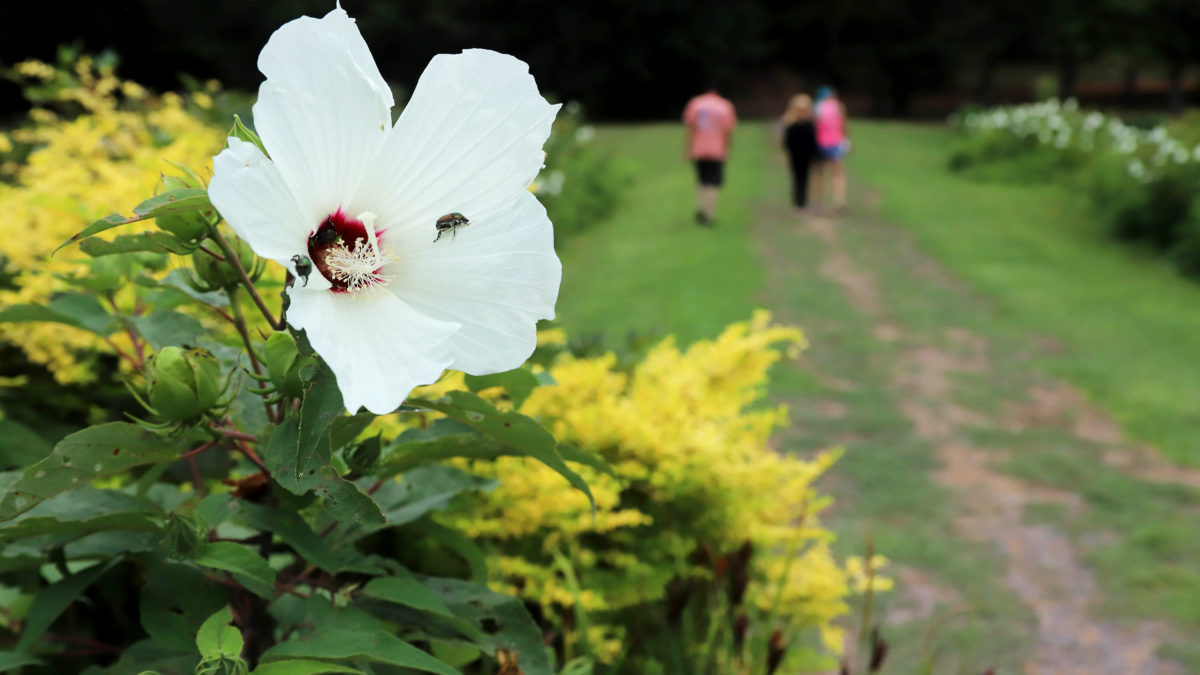Falcon Trail Takes Flight in Stanly County

Falcon Trail, Stanly, NC. Photo by Jennifer Podis.
Expanding the Carolina Thread Trail in rural communities takes a different approach than in urban centers. Even though the Village of Misenheimer is tiny (only 650 residents as of the last census), they have an outsized commitment to building the Thread Trail.
Much of the credit for the advancement of trails in Misenheimer, and indeed in the surrounding region, goes to Dr. Mike Riemann. He, along with other members of the Friends of North Stanly Trails and Parks, began work on a vision for a 9.5 mile Falcon Trail about 15 years ago.
When complete, the Falcon Trail will connect Misenheimer with nearby Richfield and New London, giving residents access to schools, parks and businesses. Today the trail is 2.7 miles, including a connection to Pfeiffer University.
Dr. Riemann retired in 2003 after a 38-year career as a Chemistry professor and administrator at Pfeiffer. Since then, he says he’s always “been doing something.” During four of those years, that something was serving as Mayor of the Village of Misenheimer.
Leaders of Misenheimer, Richfield and New London were “looking for projects we could do together,” says Riemann. “Calvin [Gaddy, then Mayor of New London,] heard about the Carolina Thread Trail, which was just getting started then, and got a brochure.” They thought this could be a great collaboration for their towns, bringing outdoor recreation and economic development.
The Friends of North Stanly Trails and Parks was born, and they got to work, writing grants and building community support. In 2011, the three towns received their first $20,000 CTT grant, matched by $10,000 contributed by the three towns, to design the first phase of what would become the Falcon Trail.
Today, the Friends group is still active. They not only raise funds to continue building the Falcon Trail, they are also responsible for its maintenance and management — an unusual arrangement: most CTT segments are managed by a city or county government.

Dr. Mike Riemann. Photo by Jennifer Podis
Riemann’s biggest piece of advice for trail organizers: Get your easements (a legal agreement granting the right to use someone else’s land for the purpose of a trail) as quickly as you can. “When we started, people gave strong verbal commitments, but in a few cases we didn’t get the easement quick enough. In one case, when we went back to formalize the easement, the property had been sold, and the new owner didn’t want to participate. You need to get these things on paper as soon as possible,” Riemann says.
“We’re not doing trails like in a big city, where they can issue bonds and spend multiple millions of dollars. But even if we’re just doing a natural-surface trail now, by getting the properties in place, we’ve got the connectivity. At some point they can do something more, but only if the route is available. It’s a lot cheaper now than it will be 20 year from now.”
The Next 3 Miles
The new section will cost about $250,000 — more than three times the cost for the first section, Riemann notes. Construction is supported with a $100,000 CTT grant. The new section runs through Richfield, and moves the Falcon Trail closer to the goal of connecting to New London. When this segment is complete, expected by December, the trail will be 5.5 miles.
Riemann says he sees being part of the Thread Trail as a big plus for the community. “Not only are trails good
for recreation and transportation, they support our local economy. We don’t have the resources of bigger municipalities. Being part of the Carolina Thread Trail network is a great boost to our local efforts.”
